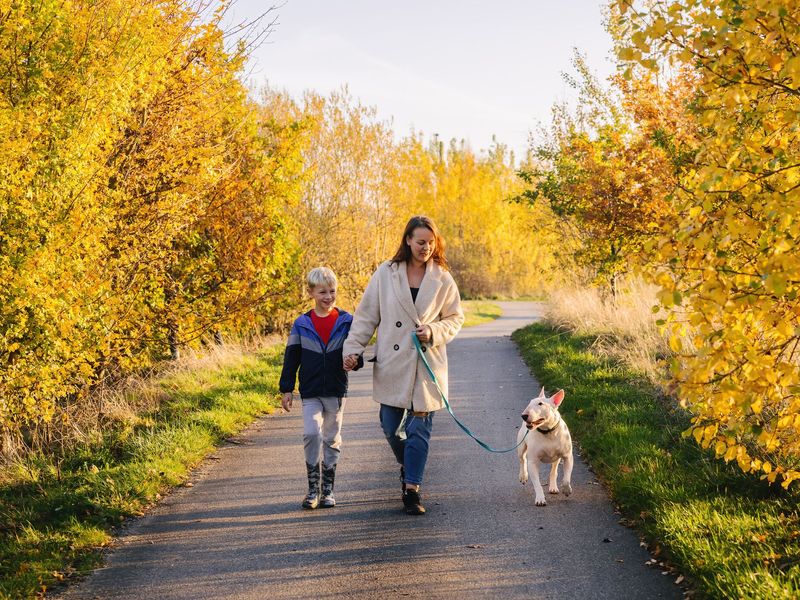Signs your dog is reactive and what to do if they are
Tips for a stress-free stroll with your reactive dog.

Does your dog tend to bark, lunge, or act uneasy around people or other dogs while you're out for a stroll? Walkies should be a fun time for both of you. But sometimes, the presence of other dogs or people can distress your pooch or make them feel frustrated, especially if they're itching to say hi. It can be tough to see your dog feeling this way. But don't worry, we’re here to help.
Signs your dog is reactive
We generally refer to dogs as being reactive when they show signs of worry or frustration around others on walks. Your dog could be considered reactive if, when on walks, they:
- lunge, bark, growl or snarl at another dog or person
- bounce around frantically, maybe trying to get out of their collar or harness
- grab your clothing or body and shake it
- nip another dog they’re being walked with
- try to hide behind you, or between your legs
- try to jump up into your arms
- pull away.
Why is your dog reactive?
Dogs communicate with us and each other through body language and vocalisations.
If your dog feels fearful or anxious around other dogs or people, they may try to hide or get away from them. They may also approach them using threatening body language to make them move away.
If they really love saying hello to everyone and playing with every dog they meet, they may want to move closer.
While on-lead, they might not be able to move away or closer. This can result in frustration, and their attempts to move away or to get closer can intensify.
Reactive behaviour can develop due to a dog's experiences, or lack of, during puppyhood. Some dogs may lack social skills because they haven't learned appropriate boundaries, or how to communicate appropriately. Others may have had bad experiences that make them feel vulnerable when they're faced with similar situations.
Can a reactive dog be trained?
Absolutely. Here are our top tips for helping your dog:
- consistently use reward-based training methods and keep them on a lead when needed
- choose quiet places and times for walks, when possible, to avoid triggers while you’re working on changing their emotions
- if you encounter a trigger, calmly move your dog away, avoiding adding extra tension to the lead (try luring them away with a tasty treat or favourite toy to play with)
- reward calm behaviour
- practice focus training to help them pay attention to you
- learn to recognise your dog's body language. This will help you understand when they're feeling worried or frustrated
- speak to your vet to rule out any underlying medical conditions.
Prevent your puppy from becoming reactive
If you have a new puppy, the best way to tackle reactivity is to prevent it from happening. Our puppy socialisation advice is packed full of tips and tricks to give your new best pal the best start in life.
Contact our Behaviour Support Line
Need help with your dog’s training or behaviour? Contact our Behaviour Support Line for free expert advice.
Call us on 03030036666
or
Our free telephone service is open Monday to Friday 8.:30am to 7.:30pm and Saturday and bank holidays 9.:30am to 5pm.
Related articles




